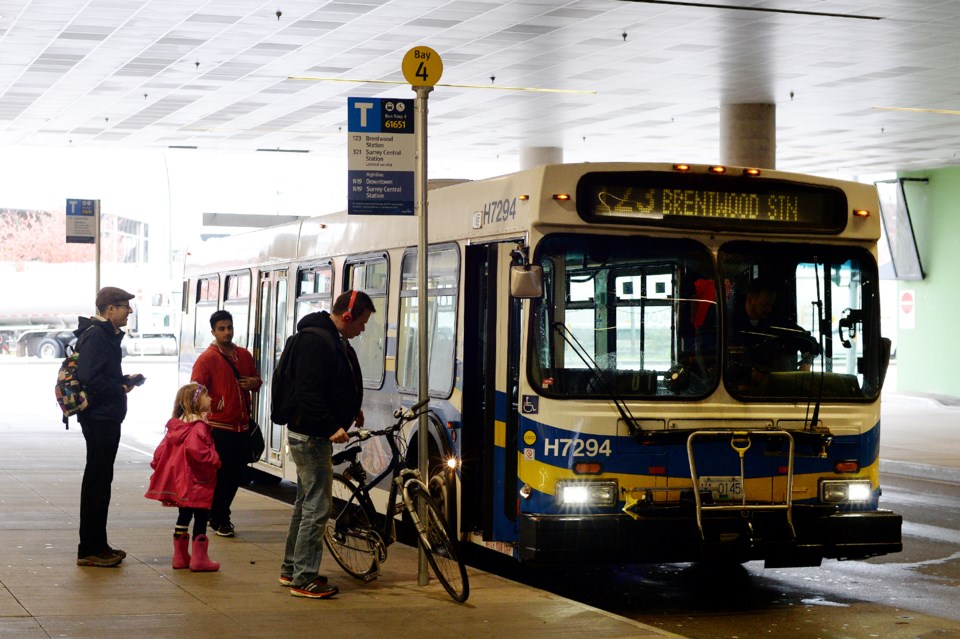New Westminster is on board with calls to make transit services free for minors so they’re not being penalized for being poor.
Viveca Ellis of the B.C. Poverty Reduction Coalition appeared before council Monday night to urge the city to support the All on Board campaign.
“All on Board is calling for free transit for children and youth zero to 18, and a sliding scale pass for other riders to ensure that our most vulnerable and marginalized citizens can access the transit system,” she said. “One of the main issues that has been brought forward is also addressed in the motion – the ticketing of youth. Right now in our TransLink system, we give out a $173 ticket to anybody.”
Ellis said children as young as 11 are given tickets if they haven’t paid their transit fare. She said many people who are ticketed are homeless, at-risk or marginalized citizens, many who are trying to access services like food banks or go to job interviews.
“What happens is they get dozens and dozens of tickets because they can’t afford to get on the bus. TransLink issues a $173 ticket no matter what,” she said. “What happens is these tickets build up and build up until they have thousands of dollars of what is commonly referred to, in the sector that serves vulnerable youth, as TransLink debt.”
According to Ellis, many community agencies have programs that fund the paying of that TransLink debt, which means that instead of funding programs those charitable dollars are going to that debt so young people are able to get their drivers’ licences and move forward in their lives. In addition to putting young people in unnecessary risk if they don’t have transportation, she said the fare-evasion fines can have long-lasting and negative effects such as debt, damaged credit and inability to get a driver’s licence.
Council approved a motion by Coun. Nadine Nakagawa to endorse the All on Board campaign and to ask TransLink to work with the provincial government regarding funding and developing a plan that will provide free public transit for minors, aged zero to 18, and reduced price transit based on a sliding scale for all low-income people regardless of their demographic profile.
Nakagawa said All on Board is a grassroots campaign supported by groups like the B.C. Poverty Reduction Coalition, the Single Mothers’ Alliance B.C. and Better Environmentally Sound Transportation.
“This is really people with lived experience,” she said. “When people tell us their experiences and what they believe are the solutions, we need to believe that they know best about their lives.”
The City of New Westminster will also write to the Mayors’ Council on Regional Transportation and ask it to adopt a poverty reduction/equity mandate in order to address the current lack of affordability measures to ensure those who most need public transit can access the essential service. It will also ask TransLink to stop ticketing all minors for fare invasion and allow low-income adults to access community service or restorative justice services as an alternative to tickets issued for fare evasion.
Coun. Jaimie McEvoy said the All on Board program would help many people, including those who now have to choose whether to go to their doctor or skip the appointment or go to the food bank because they don’t have cash for transit that day.
“Those are the kind of choices people make,” he said.
Coun. Patrick Johnstone said providing free transit to youth will fundamentally shift how people view transportation in the region. He believes it could drive TransLink ridership and revenues in the long run because it will create a generation of riders.
While Johnstone supports the plan, he wants funding to come from the provincial government, because it’s a poverty-reduction issue, not from TransLink.



